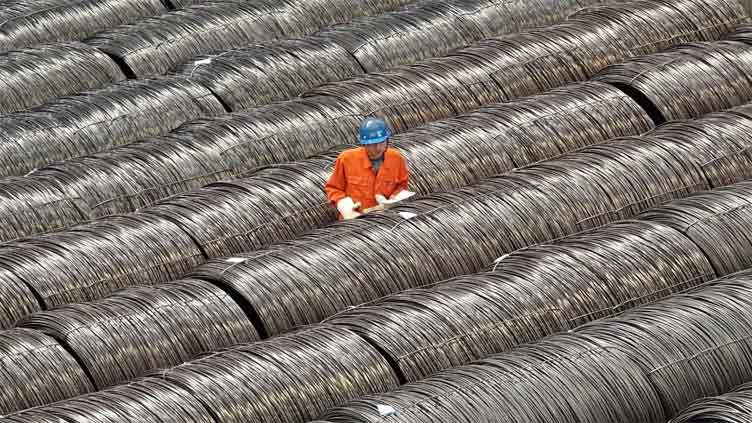China's frail Q2 GDP growth puts pressure for more policy support

Business
A deeper slowdown could stoke more job losses and fuel deflationary risks
BEIJING (Reuters) – China's economy grew at a frail pace in the second quarter, although the annual figure was flattered by base effects, data showed on Monday, with overall momentum faltering rapidly due to weakening demand at home and abroad.
Gross domestic product grew just 0.8 per cent in April-June from the previous quarter, data released by the National Bureau of Statistics showed, versus analysts' expectations in a Reuters poll for a 0.5pc increase and compared with a 2.2pc expansion in the first quarter.
On a year-on-year basis, GDP expanded 6.3pc in the second quarter, accelerating from 4.5pc in the first three months of the year, but the rate was below the forecast for growth of 7.3pc.
The annual pace was the quickest since the second quarter of 2021, but the reading was heavily skewed by economic pains caused by stringent Covid-19 lockdowns in Shanghai and other major cities last year.
"China’s Q2 GDP growth surprised on the downside, with headline reading at 6.3pc... Obviously, we might have to embrace a new wave of growth outlook downgrade in the next couple of days," said Zhou Hao, economist at Guotai Junan International,
"However, the 5pc growth target looks very attainable."
For June alone, China's retail sales grew 3.1pc, slowing sharply from a 12.7pc jump in May, the data showed. Analysts had expected growth of 3.2pc.
Industrial output growth unexpectedly quickened to 4.4pc last month from 3.5pc seen in May, but demand remains lukewarm amid a bumpy post-Covid economic recovery.
Recent data showed a rapidly faltering post-Covid recovery as exports fell the most in three years due to cooling demand at home and abroad while a prolonged downturn in the key property market has sapped confidence. The weak overall momentum has raised expectations policymakers will need to do more to shore up the world's second-biggest economy.
Authorities are likely to roll out more stimulus steps including fiscal spending to fund big-ticket infrastructure projects, more support for consumers and private firms, and some property policy easing, policy insiders and economists said. But analysts say a quick turnaround is unlikely.
While China is seen on track to hit its modest 2023 growth target of around 5pc, a deeper slowdown could stoke more job losses and fuel deflationary risks, further undermining private-sector confidence, economists said.
Some economists have blamed the "scarring effects" caused by years of strict Covid measures and regulatory curbs on the property and technology sectors - despite recent official efforts to reverse some curbs to support the economy.
With uncertainty running high, cautious households and private businesses are building up their savings and paying off their debts rather than making new purchases or investments. Youth unemployment has hit record highs.

